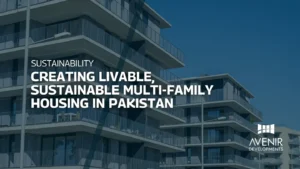
What is a Furdown? How Does It Elevate Your House Design?
What is a Furdown? How Does It Elevate Your House Design? A “furdown” is a lowered section of a ceiling, also known as a soffit
Your expert resource for architecture, construction, and interior design in DHA Islamabad, DHA Lahore, and Naval Anchorage.
Planning your next project can be complex. Our blog provides direct, practical information to help you make confident decisions. Here, we share our professional knowledge on everything from initial design to final construction.
Find clear answers and expert guidance from the team at a leading architecture company in Pakistan.


What is a Furdown? How Does It Elevate Your House Design? A “furdown” is a lowered section of a ceiling, also known as a soffit

LAHORE HOUSE CONSTRUCTION 2025 Building a house in Lahore requires clear financial planning. Expect grey structure costs around PKR 2,800 to PKR 4,500+ per square

Pakistan’s cities are growing rapidly. This growth fuels a high demand for housing. Multi-family housing, like apartments and flats, offers a practical solution. These homes

Considering an investment or dreaming of building your home in one of Pakistan’s most prestigious communities? The Future of DHA Islamabad is a pivotal topic

DHA Lahore remains a cornerstone of upscale living and a prime investment hub in Pakistan, continuously evolving with new phases like the promising Phase 9

Pakistan’s urban centers, particularly Lahore and Islamabad, are undergoing a significant transformation in urban living, with a growing shift towards modern, sustainable, and smart apartment

The Grand Trunk Road, or GT Road as we affectionately call it, isn’t just a road. It’s a lifeline that has pulsed with history, culture,

The May 2025 India-Pakistan ceasefire, while tentative, gives a huge real estate opportunity, and opens a potential new era for Pakistan’s ~$1 trillion+ real estate


Avenir Developments in the news! brings the uptates of its much-anticipated launch of Nora Residences’ second tower. Building upon the resounding success of the first


NORA Residences Islamabad, a flagship project by Avenir Developments, promises a new benchmark in apartment living. Located on the iconic GT Road Islamabad, this development


What is the Miyawaki Method? The Miyawaki Method is all about mimicking nature’s own forest regeneration processes. Here’s a breakdown of its key principles: Islamabad

Challenges faced by Architecture Industry in Pakistan are unique. Pakistan’s architecture industry, a cornerstone of our evolving urban landscape from Lahore’s historic heart to Islamabad’s
Get answers to common questions about our services, the development process, and investing in Islamabad & Rawalpindi.
The core principles are the same, but a 2 Kanal house design involves different structural considerations, potentially more complex MEP (Mechanical, Electrical, Plumbing) systems, and a longer project timeline. We manage these factors for you.
Yes. Our interior design team specializes in creating functional and appealing commercial spaces, including restaurants, retail outlets, and corporate offices across Lahore and Islamabad.
The timeframe varies based on size, complexity, and design specifics. After an initial consultation and design finalization, we provide a detailed project timeline.

Avenir Developments is a bespoke Architecture & Interior Design atelier specialized in Design & Build services across residential and commercial real estate. We thrive on building structures and crafting environments that enhance the quality of life through innovation, excellence, and craftsmanship. Building your dream home can be exciting yet challenging. Whether a new home or a house renovation, all come with unknown and unforeseen issues that are often over budget and construction delays.
Our mission is to demystify this process with our transparent Architecture & Interior Design services.
We create realistic 3D Visualizations, illustrations, detailed planning, and expert advice to ensure your vision and budget stay on track. With us by your side, you’ll confidently navigate the complexities of realizing your dream home while enjoying an infomed, seamless and rewarding experience.
Follow Avenir Developments on our social media platforms to stay updated about the best of custom home building, architecture and interior design.

WhatsApp us